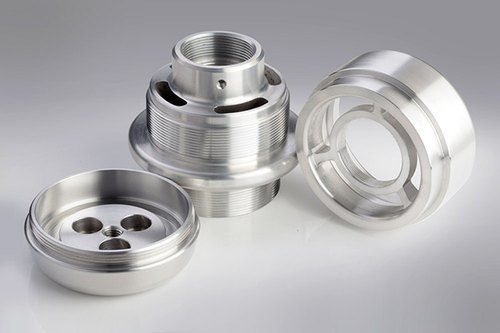A variety of parts and components are created using the computer-aided manufacturing method known as computer numerical control (CNC) machining in volumes ranging from prototyping to full-scale production. Precision aluminum parts are frequently produced using CNC machining, which is frequently the favored technique. Because of its numerous advantageous physical characteristics, aluminum is one of the most widely utilized metal.
Properties of Aluminum Machined Components
Generally speaking, aluminum is a malleable, strong, nonmagnetic metal with exceptional thermal and mechanical properties. This material has some advantageous qualities that make it a suitable option for machined components, including.

Ductility and malleability.
Aluminum is a very pliable metal that is simple to mill, mold, and drill.
Versatility.
There are numerous grades of aluminum and aluminum alloys, each of which is created with certain properties to satisfy particular applications.
Resistances.
Numerous outstanding corrosion and chemical resistances exist for aluminum. A thin, protective coating of oxidation develops on the surface of the metal when it is exposed to air, shielding it from more oxidation. The majority of acids are extremely resistant to aluminum’s resistance to strong chemicals.
Strength-to-weight ratio.
Aluminum is the perfect material for transportation applications due to its high strength-to-weight ratio. Alloys made of aluminum offer the durability and strength necessary for vital parts, and the metal’s light weight lowers pollutants and fuel consumption.
Conductivity.
The thermal and electrical conductivity of aluminum is quite good. Major power transmission lines are frequently made of aluminum, which is also a great material for heat sink applications like computers that need to quickly remove heat. Aluminum works well in lighting applications because it is a good heat and visible light reflector.
Non-toxic.
Because it is a non-toxic, odorless metal, aluminum is frequently used in the manufacturing of pharmaceuticals and foods.
Common Aluminum Components and Applications
Precision machining of aluminum parts and components for usage in a wide variety of industries is our area of expertise at Precision. We frequently work in the following industries:
- Automotive
- Aerospace & Defense
- Construction
- Energy
- Fluid, air, and motion control
- Industrial
- Manifolds
- Pharmaceutical
- Power distribution
- Transportation
Our varied assortment of precision machined components and assemblies, including castings, manifolds, die castings, forgings, specialty valves, and transmission and switching components, are made possible by our aluminum machining capabilities.


